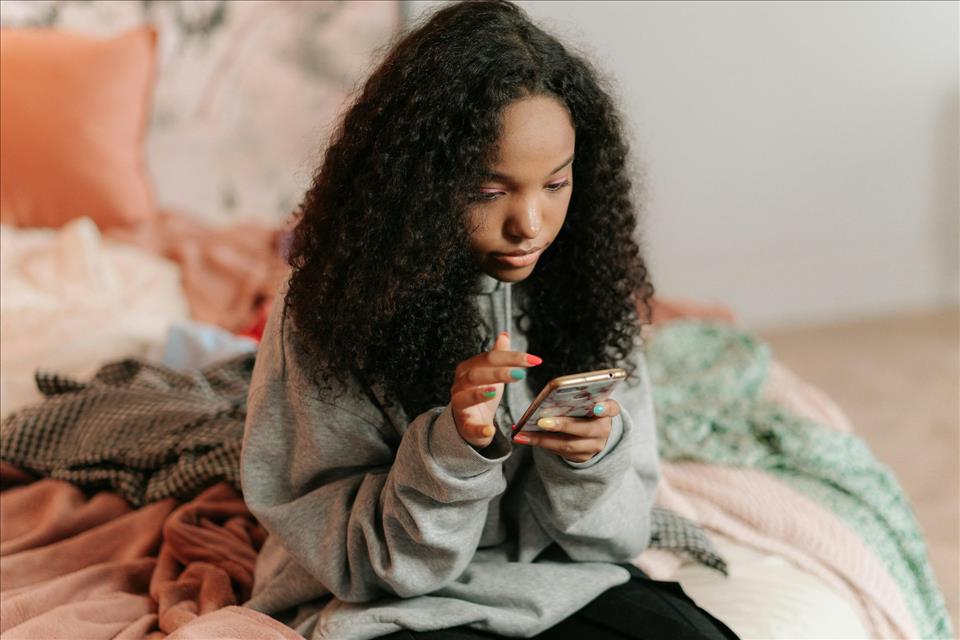
'The Main Thing You've Got Is Tiktok': How The Social Media Ban Could Harm African Diaspora Youth
A lot of the debate around this change has focused on the harms of these platforms, such as cyberbullying, misinformation and screen addiction.
But we also know social media is an important way for young people to connect, especially for marginalised groups.
Our as yet unpublished new research shows the ban risks harming young Australians of African heritage by limiting vital pathways for identity formation, belonging and connection.
Our researchSince 2023, we have been working on a broader project on African Diaspora Youth Belonging. This has involved nine youth co-researchers from across Australia. Their experiences and reflections form part of the research and they have learned to design and carry out research themselves.
In this particular part of the research, the nine co-researchers conducted two rounds of conversations with 31 other African diaspora young people about belonging in Australia in 2023 and 2024. This included questions about social media use. Young people were invited through personal networks and social media.
Participants came from every state and territory except Tasmania, and from both urban and regional areas. The group included 26 young women, 13 young men, and one participant who identified as trans-female.
While a majority of the participants in our study were aged 17–20, most described having accessed social media from much younger ages.
'I could actually find people like me'Our interviewees described social media as a pivotal space for understanding their identity. These platforms enabled participants to“see people like me”,“learn about my culture”, and“find words to describe what I've always felt”.
In particular, TikTok, YouTube and Instagram were seen as everyday spaces where Black youth could go to connect. Umar* (18) from South Australia explained,
Another participant, Abebi (21) from the ACT, added social media was“always uplifting”:
'There's a lot of people out there who can teach you'Participants emphasised the information they accessed through social media wasn't available elsewhere. Tresor (20) from New South Wales told us social media taught him important things he would not learn at school:
Keji (18) from the ACT similarly spoke of social media as a resource for learning about identity and culture:
'I can be anyone'Afro-Blackness in Australia is often depicted in negative terms. The African gangs narrative, for example, presents African young people as deviant and a threat to the social order. Participants described how in everyday spaces in Australia, they felt they had to“shut your Blackness down [...] because it wasn't seen as a good thing”.
Social media, however, provided more complex, positive representations of Black identity. For example, Farai, a 21-year-old of Zimbabwean heritage, described how TikTok expanded her understanding of what it means to be Zimbabwean:
Similarly, Venus (18) from the ACT said social media helped her realise“there isn't one type of Black person [...] it's okay to be different”.
Social media also provided young people with the language and tools for self-advocacy. James (19) from NSW told us:
'I could be like that'Social media is often criticised for pushing toxic content at young people. Our participants acknowledged this. Tongai, (18) from NSW noted“looking at other people and what they're doing is obviously not healthy”. Yet, many had developed the skills to curate their feeds and limit harmful content. As Addition (20), who identified as trans-female, shared:
The social media ban ignores young people's digital literacy – our research suggests many are already critically engaging with complex online worlds.
When implemented, the ban risks further marginalising this diverse group of young people by restricting access to a key source of identity, connection and culture. As Aaliyah (18) from South Australia told us,
*names have been changed.
The authors would like to acknowledge the nine youth co-researchers who were essential in the data collection and analysis: Benjamin Grant-Skiba, Elaine Ncube, Shaza Hamed, Efon Luwala, Mwangaza Milunga, Jeanne Munyonge, Zamda Omba, and particularly Habibat Ogunbawo and Yahya Djomani-Ousmane who have been specifically involved in this article.

Legal Disclaimer:
MENAFN provides the
information “as is” without warranty of any kind. We do not accept
any responsibility or liability for the accuracy, content, images,
videos, licenses, completeness, legality, or reliability of the information
contained in this article. If you have any complaints or copyright
issues related to this article, kindly contact the provider above.


















Comments
No comment